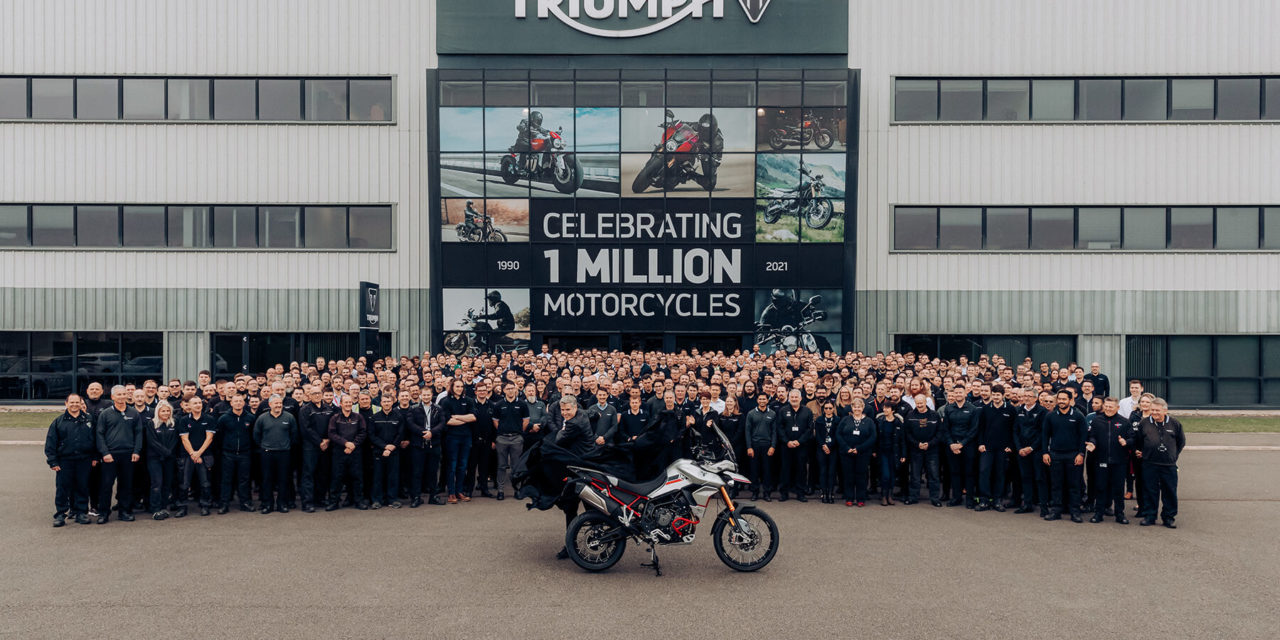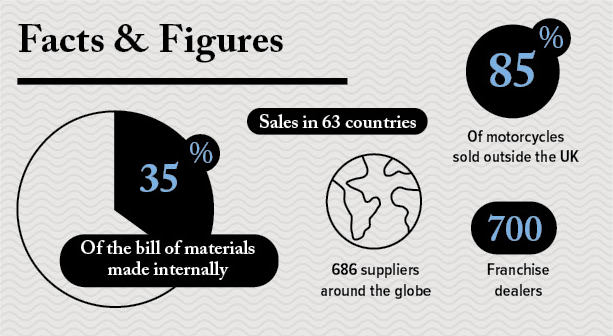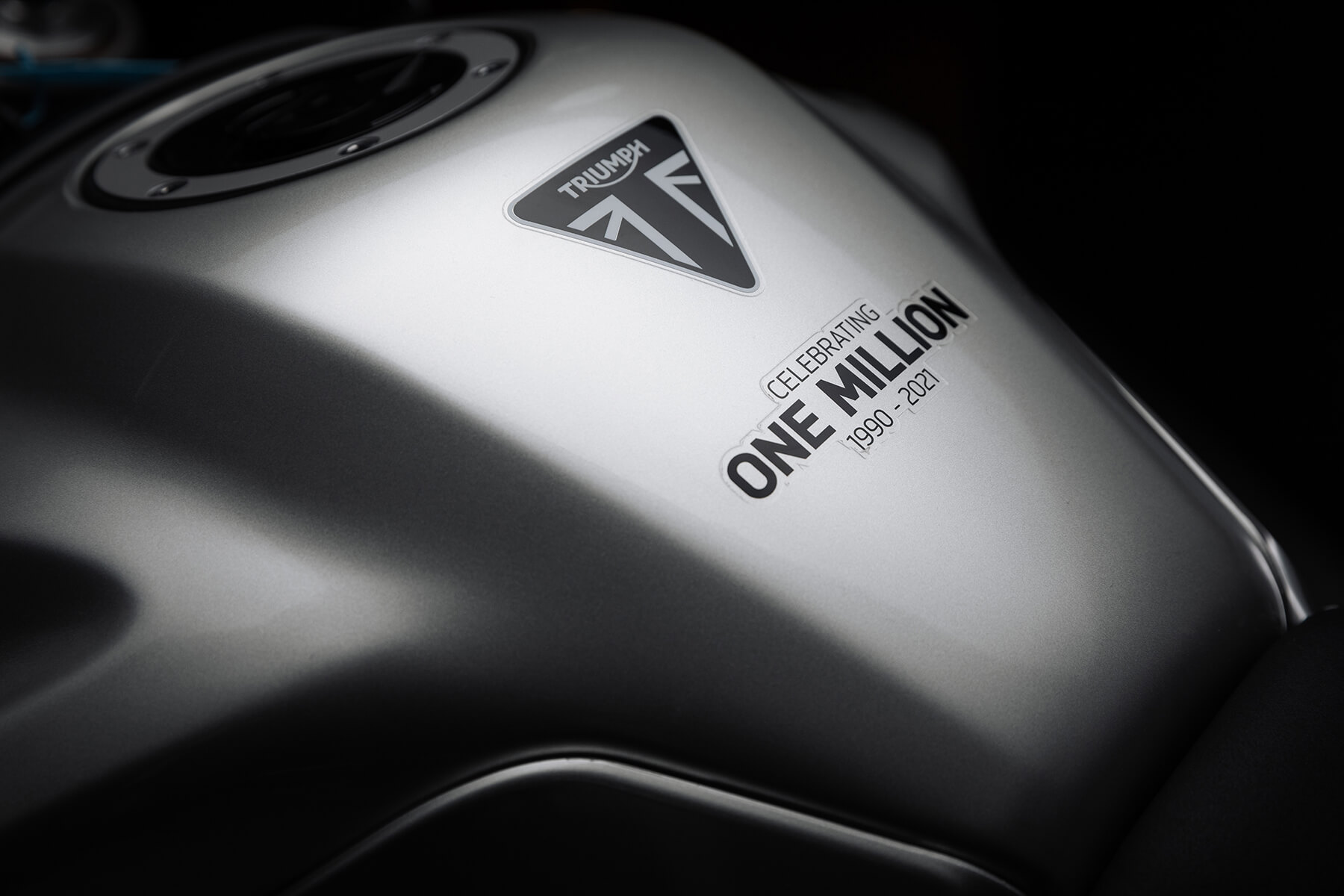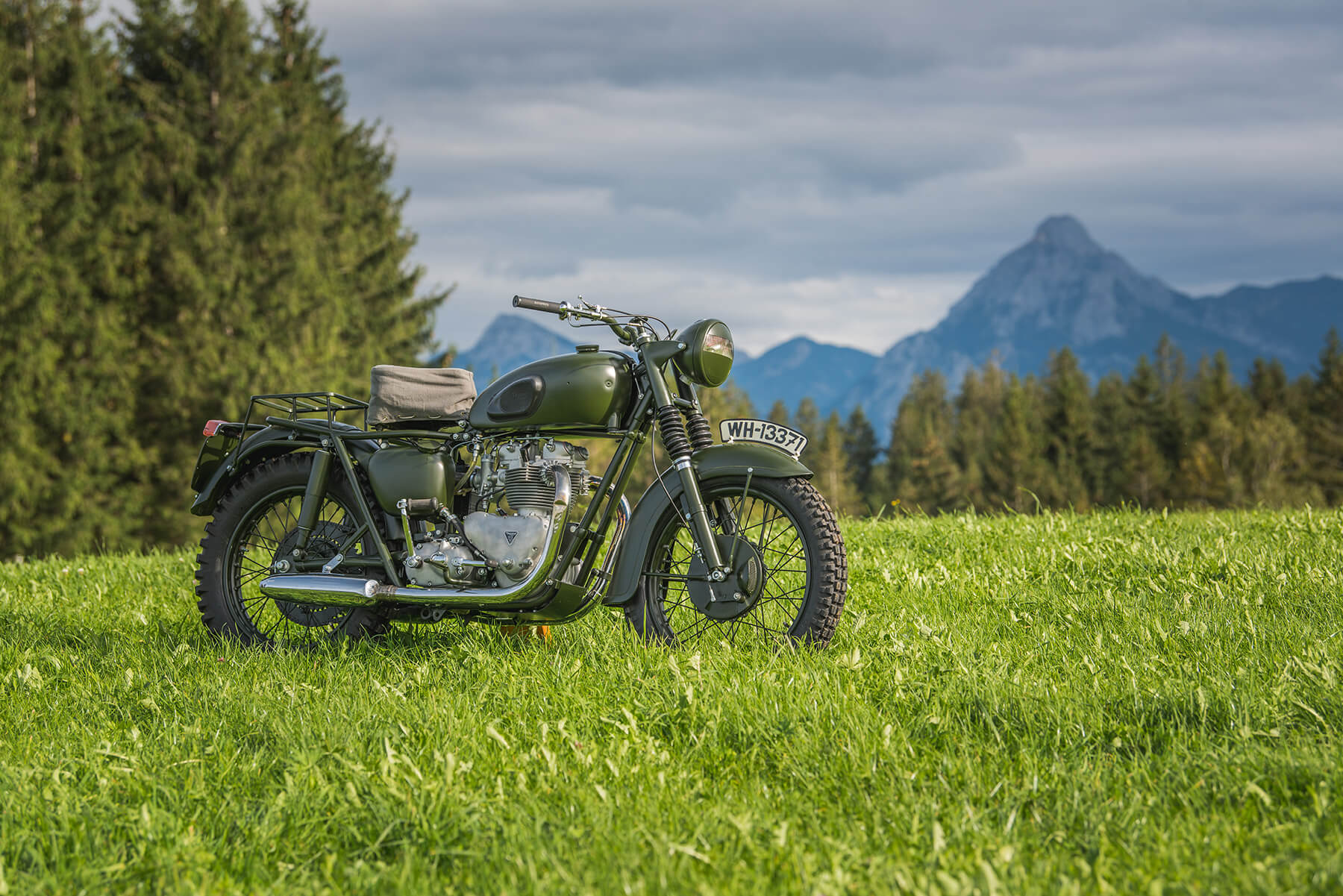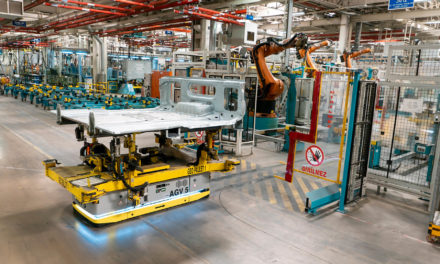Triumph on the Road to ERP Modernisation
Sponsor: Infor
By embracing change and the new thinking it delivers, Triumph has modernised operations and revitalised its legendary brand, using the advanced functionality of Infor LN and PTC Windchill.
All images courtesy of Triumph
Triumph motorcycles first began gaining recognition and sales when legendary actors and global icons such as Marlon Brando and Steve McQueen could be seen riding Triumph motorcycles on the big screen. But today’s highly volatile business landscape is a far cry from the simpler era of the 1950s and ‘60s. Now, real-world business efficiency and stellar accomplishments give brands time in the spotlight too, in addition to silver screen product placements.
Triumph knew that optimising its complete manufacturing processes, from shop floor scheduling to board room strategies, was important for growth. With the help of Infor solutions, built especially for complex, discrete manufacturing, Triumph set out to perform a complete digital upgrade.
Triumph’s road to modernisation started with a strategic review that led the company towards a new range of modern classic bikes. At the same time, Triumph also identified the need for an overhaul of its engineering, manufacturing and supply chain business processes.
“Over the years we’ve ended up with approximately 160 to 170 different systems that were serving various purposes within the business, our aim was to simplify our systems landscape to end up with a core end-to-end system which supports most of the operational work for the business,” says Triumph’s COO, Jamie Looker.
Triumph’s culture is one of innovation, passion and determination, promising customers to “build your bike to your specifications”. Triumph offers a Configurator web page allowing customers to configure their ideal bike from model, colour, performance, styling, comfort options, packs and accessories. These details are fed back into the manufacturing system to create a custom order with the dealer.
To address Triumph’s current and future challenges, Looker says the key was making sure we have that agility to be able to enhance the system or develop to support our business needs of today, while also being able to support the business of the future, which is an environment that is everchanging.
Why partner with Infor?
Triumph calls itself a cautious company and is accustomed to developing its systems internally. As such, the process of requesting and reviewing vendor proposals was challenging. Eventually, Infor was selected as the ERP vendor because of its flexibility and willingness to work to meet Triumph’s agility needs, while providing co-development support into the longer term.
One of Triumph’s strengths is its flexibility to change engineering plans, something that it did not want to jeopardise. Triumph also wanted a single vendor that was fully accountable for project success across the end-to-end needs. Infor solutions, all fully integrated, handle the full scope of the various steps, using Product Lifecycle Management (PLM) capabilities to manage the design through bill of materials, providing a clear history of every part for each bike manufactured.
Given the scale and volume of Triumph’s manufacturing, the integration is being delivered in phases. Infor and PTC Windchill are working together to ensure a smooth transition.
Results so far
Infor and Triumph have successfully rolled out phase one across 18 months. The new system has added the agility for improved product ordering and communication with customers. Infor LN’s data-driven processes also encouraged Triumph to assess its standard BOM and eBOM (engineering bill of materials) handling, also streamlining processes.
In an interview with The Manufacturer, Looker noted the early successes: “We’ve been very successful in rolling out phase one… We wanted to get the agility and ability to configure bikes and flex bikes within the system. We achieved all of that. Eventually, we want to make sure that we can communicate better with our customers going forward. And a lot of those customer-facing elements of the system are steadily going live.”
Success has come from breaking down the project into smaller parts to deliver success (currently one-third of the total system is live), creating enthusiasm for the planned elements going live and delivering greater benefits.
Access to real-time data and
metrics from across its factories and lines is an important benefit that is already being realised. With the successful migration to Infor LN, Triumph has increased visibility and control over line assembly, the quality of CAD schemes and bill of materials.
Another benefit is that it is easier to analyse and review data generated by the core ERP than previously. All Triumph’s data is accessible in one place and comes with improved data governance to ensure data quality. This translates to more practical data entry systems, such as barcodes or QR code scanners, replacing manual data entry methods with RFID to improve accuracy.
Other benefits include enabling Triumph to see just how much ‘dirty’ data was generated in the old set of systems, and how much easier it is to analyse with the new digital platform from Infor, improving the speed and quality of decision-making.
Looking ahead
Phase two of the project is now underway, stretching across another 24 months of work. Now, phases are shifting as the business horizon evolves around Triumph’s business realities and changes. Still, the focus remains on what data is important to the business over the coming years. The plan is to deploy Infor LN as the backbone business system, integrating Microsoft Power BI, data governance, and AI tools as they become available to improve information quality.

